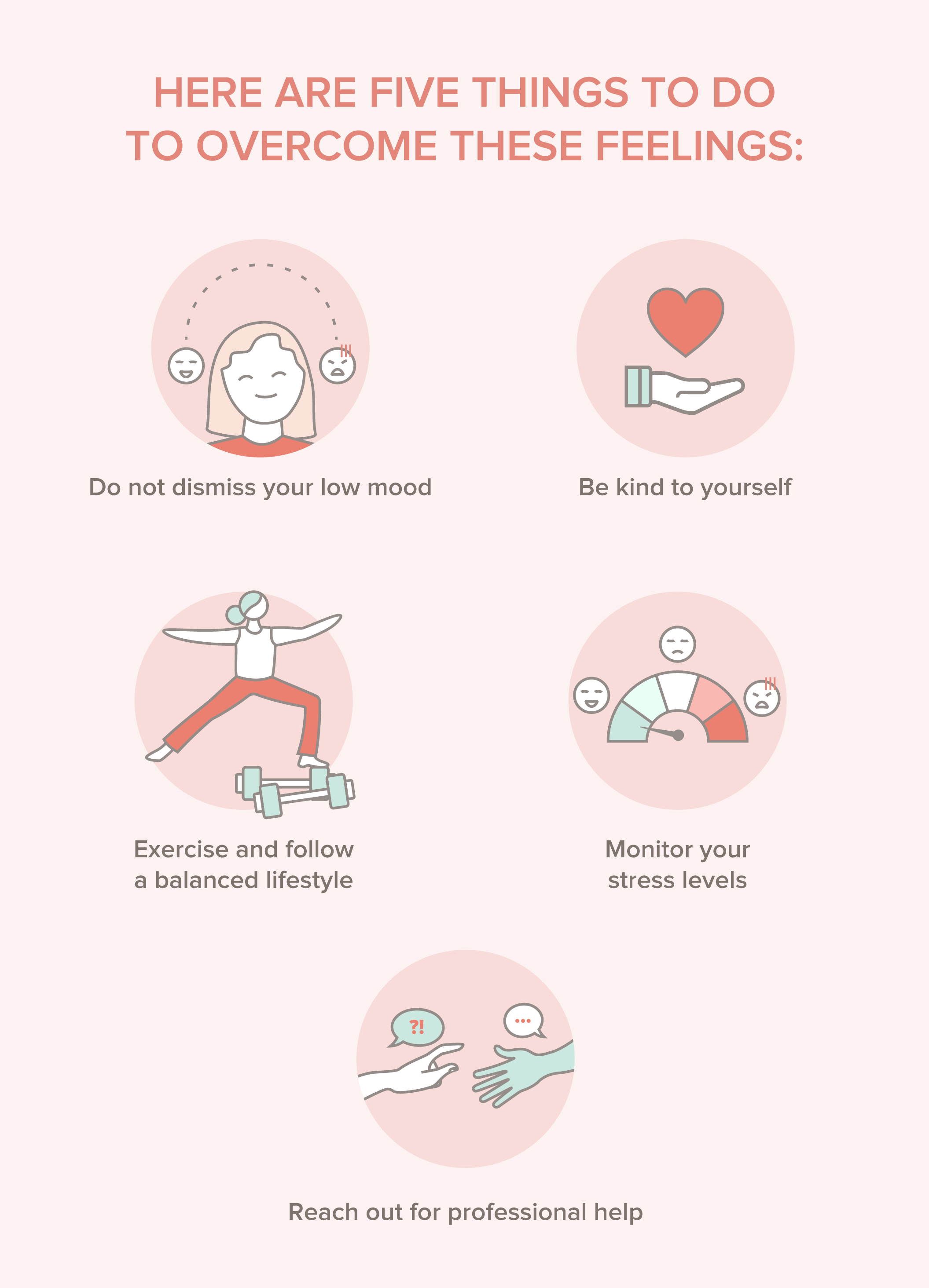Feeling low and having emotional disturbances during or right before a menstrual cycle is quite common. This primarily occurs due to fluctuating hormone levels during that time.
These changes result in several other symptoms, too, such as bloating, fatigue, acne breakout, and so on. These period symptoms are known as Premenstrual Syndrome or PMS.
While several women experience PMS, for some, mood symptoms and emotional disturbances are predominant. To women in such cases, PMS is often referred to as Premenstrual Dysphoric Disorder (PMDD).
Unlike PMS which refers to a range of period symptoms, PMDD is more specific to mood changes involving depression and anxiety at a more severe level. For example, during PMS a person may feel sad, but in PMDD, the person will feel extreme sadness and feel that life is hopeless and has no meaning.
However, there are ways in which you can overcome PMDD. Here are 5 things to do to manage these feelings:
Do not dismiss your low mood
It is important to recognize that during your periods, your body goes through hormonal fluctuations which may cause changes in your mood and cause emotional disturbances. Sometimes this may be marginal, while other times it may be deeper. It is important to not dismiss how you are feeling. Acknowledge it so that you are aware of how you are feeling. It can also help you understand whether your mood is triggered by anything else.
Be kind to yourself
Once you acknowledge that you are feeling low or depressed, be kind to yourself. Try to do things that make you feel content. Do not take yourself to situations that may trigger you unnecessarily. Do one fun thing for yourself every day or keep a set time for yourself, which is your ‘me’ time or ‘self’ time. If required, give yourself the appropriate rest and some time off!
Exercise and follow a balanced lifestyle
Research has shown that exercise and following a balanced lifestyle limits the mood disturbances caused during periods and the overall changes as well. This includes following a physical routine a few times a week, receiving adequate amounts of sleep and following a nutritious healthy balanced diet.
Monitor your stress levels
It is important to monitor your stress levels overall as high stress levels can increase hormonal fluctuations and your moods during your period. It is therefore important that you recognize unmanageable stress and use relaxation exercises like meditation, yoga and mindfulness to calm your body. Furthermore, try to avoid stressful situations wherever possible. Try not to overthink stressful situations and ask for help if unable to cope on your own.
Reach out for professional help
If you are feeling that your mood during each period cycle is getting worse regardless of what you try, and it is difficult for you to cope – please reach out to a professional. This may include your gynecologists' first, followed by a professional counsellor or therapist.







